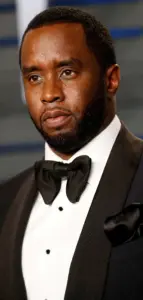
Sean “Diddy” Combs was convicted on two of the five counts in his federal sex crimes trial on Wednesday — specifically, he was found guilty of transportation to engage in prostitution. However, he was acquitted of the more serious charges related to racketeering and sex trafficking.
The prostitution charges each carry a maximum sentence of up to 10 years in prison.
The contentious trial began on May 12th, when prosecutors began presenting a chilling narrative of Combs as the leader of a criminal enterprise operating under the guise of his music and business empire. Assistant US Attorney Christy Slavik argued that Combs systematically used violence, coercion, and manipulation to control his victims.
Throughout its seven weeks, the prosecution detailed how Combs allegedly leveraged his power and resources to carry out and cover up serious crimes, including sex trafficking, arson, bribery, and physical abuse. “Up until today, the defendant was able to get away with these crimes because of his money, his power, his influence,” Slavik said in her closing statement. “That stops now.”
Conversely, the defense admitted that Combs “has a temper” and “can be physical,” but characterized the allegations as a “money grab.” In his closing argument, attorney Marc Agnifilo accused prosecutors of putting his client on trial for his “lifestyle,” rather than real crimes.
Agnifilo conceded that Combs beat his ex-girlfriend, singer Cassie Ventura, but called their relationship a “great modern love story.” He also disputed a 2004 kidnapping allegation made by Capricorn Clark and characterized the accusation of Combs torching rapper Kid Cudi’s Porsche as “nonsense.”
Moving on to allegations that Combs conspired to distribute or possess with intent to distribute a controlled substance, Agnifilo said his client was a “drug addict,” which had nothing to do with his businesses and enterprises.
Moreover, Agnifilo argued that Combs was on a “false trial” and was not guilty of sex trafficking, but rather a “swingers lifestyle” involving consensual “threesomes” with his ex-girlfriends and male escorts.
In the prosecution’s rebuttal, Assistant US Attorney Maurene Comey said the defense spent “a whole lot of energy trying to blame his [Combs’] victims and the US government for his lies, his threats, and for his inexcusable behavior.” Comey added, “Make no mistake: This trial was about how, in Sean Combs’ world, ‘no’ was never an option.”
Several crucial witnesses testified for the prosecution during the trial. Ventura spent four days on the stand detailing a decade of alleged physical and sexual abuse. Cudi also gave testimony claiming that Combs broke into his home and later arranged for his car to be firebombed.
Prosecutors also called multiple witnesses who testified to seeing Combs’ alleged violence toward Ventura, as well as several Homeland Security Investigations agents, former personal assistants, and male escorts.
The defense team rested its case without calling any witnesses or Combs taking the stand.
Heading into jury deliberations, prosecutors asked the judge to remove references to “attempted” kidnapping and arson from the jury instructions to streamline the process. However, these acts remained in the racketeering conspiracy charge without the word “attempted,” which may have confused jurors.








